- Berlin , Germany
- August 18, 2025
- 12 Views
Find the best businesses, services and offers near you – all in one place
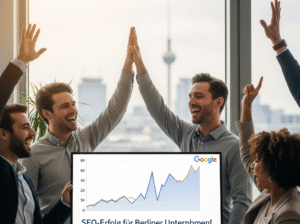
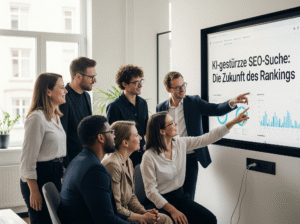

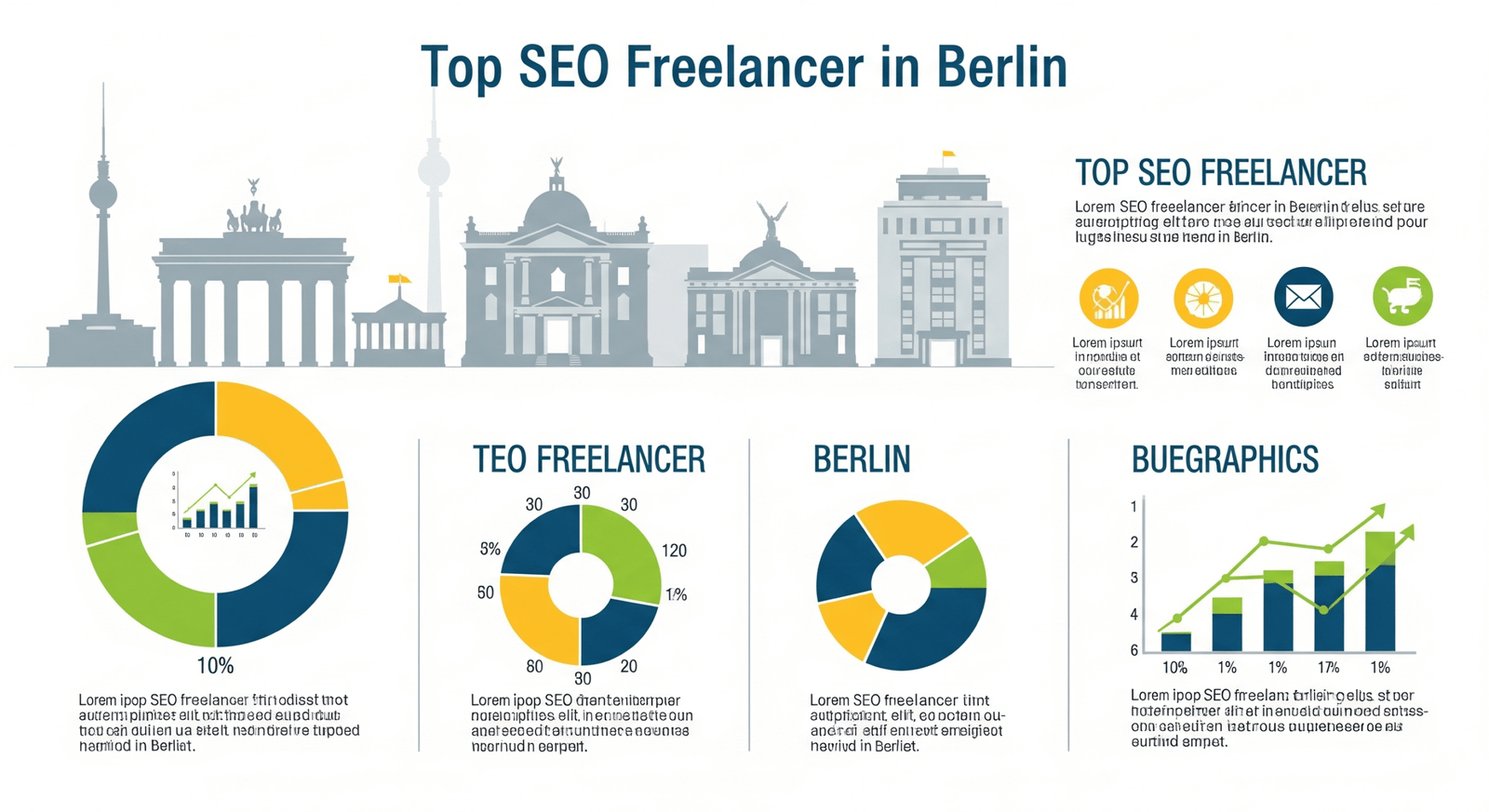
 Made in Germany
Made in GermanyWhether you're a private seller or a business, our platform is the perfect place to sell your products, build your brand, and attract new customers.
Verified users and secure deals.
We manually review ads, offer a rating system, and protect your data with secure messaging.
Find deals in your neighborhood.
Use our map to find items right around the corner. Support your community and save on shipping!
Selling has never been easier.
Take a photo, add a description, set a price – your ad is online in under a minute. It's that simple!
Give things a second life.
By buying and selling second-hand items, you contribute to a more sustainable Berlin and promote a circular economy.
Connect with neighbors.
We're more than a marketplace. We're a platform where Berliners connect, share, and help each other.
No listing fees.
Listing your items is completely free. We want everyone to participate without hidden costs.
Take a photo, add a description & price. Your ad is online instantly!
Use our secure chat without sharing personal contact details.
Arrange a local meeting to exchange the item and payment.
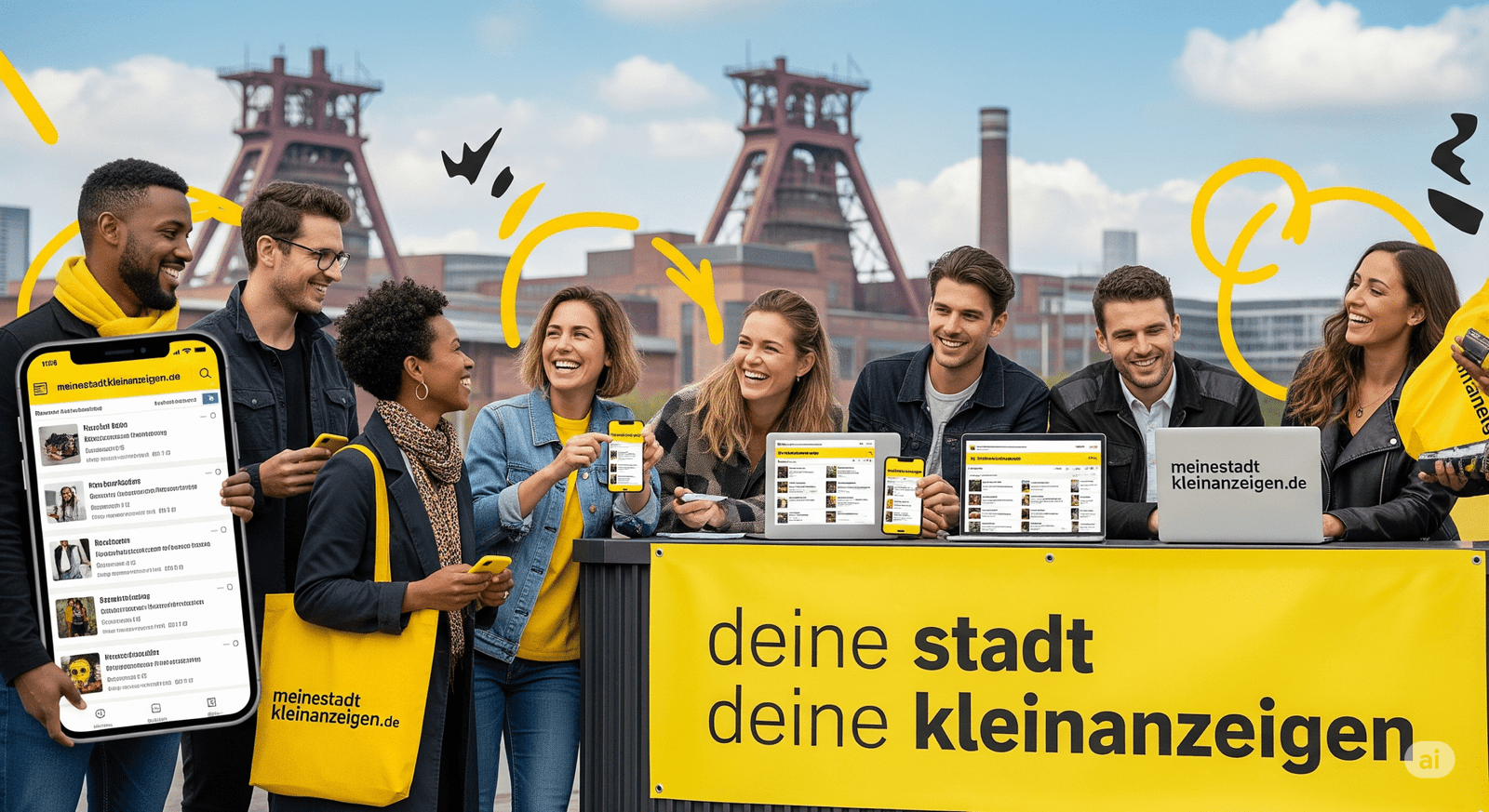
Plurance’s 1Win Clone Script is your gateway to la...
Ready-Made Clone Script to help entrepreneurs kick...
Color prediction software development enables busi...
Pragmatic Play Clone Script is a ready-made casino...
Launch your own online casino like Stake with Dapp...
Ready to build the next big name in the crypto cas...
Dappsfirm presents a robust 1XBet Clone Script des...
Die Werbeagentur Bamberger in Nürnberg ist ein Par...
Zellenkur ist eine Digital-Marketing-Agentur, die ...
Webgorilla ist eine Agentur, die sich auf umfassen...

Unlock Hamburg's ecommerce potential. Discover the elite Shopify experts and developers who can build, scale, and accelerate your online business.
As Germany's leading classifieds and business directory, we have our finger on the pulse of the local market. We connect thousands of businesses with customers every day. This guide is built on our deep understanding of what makes a business succeed online in Germany. We've done the research to help you find a trusted partner, so you can focus on what you do best: running your business.
List Your Company For FREE
Finding the right agency is the most crucial step in your ecommerce journey. We've identified the agencies that not only build beautiful websites but also create powerful growth engines. These companies are recognized by industry leaders like Clutch.co, Sortlist.de, Semrush, and Ahrefs for their exceptional work and results-driven approach, making them the top choices for businesses targeting the Hamburg market and beyond.
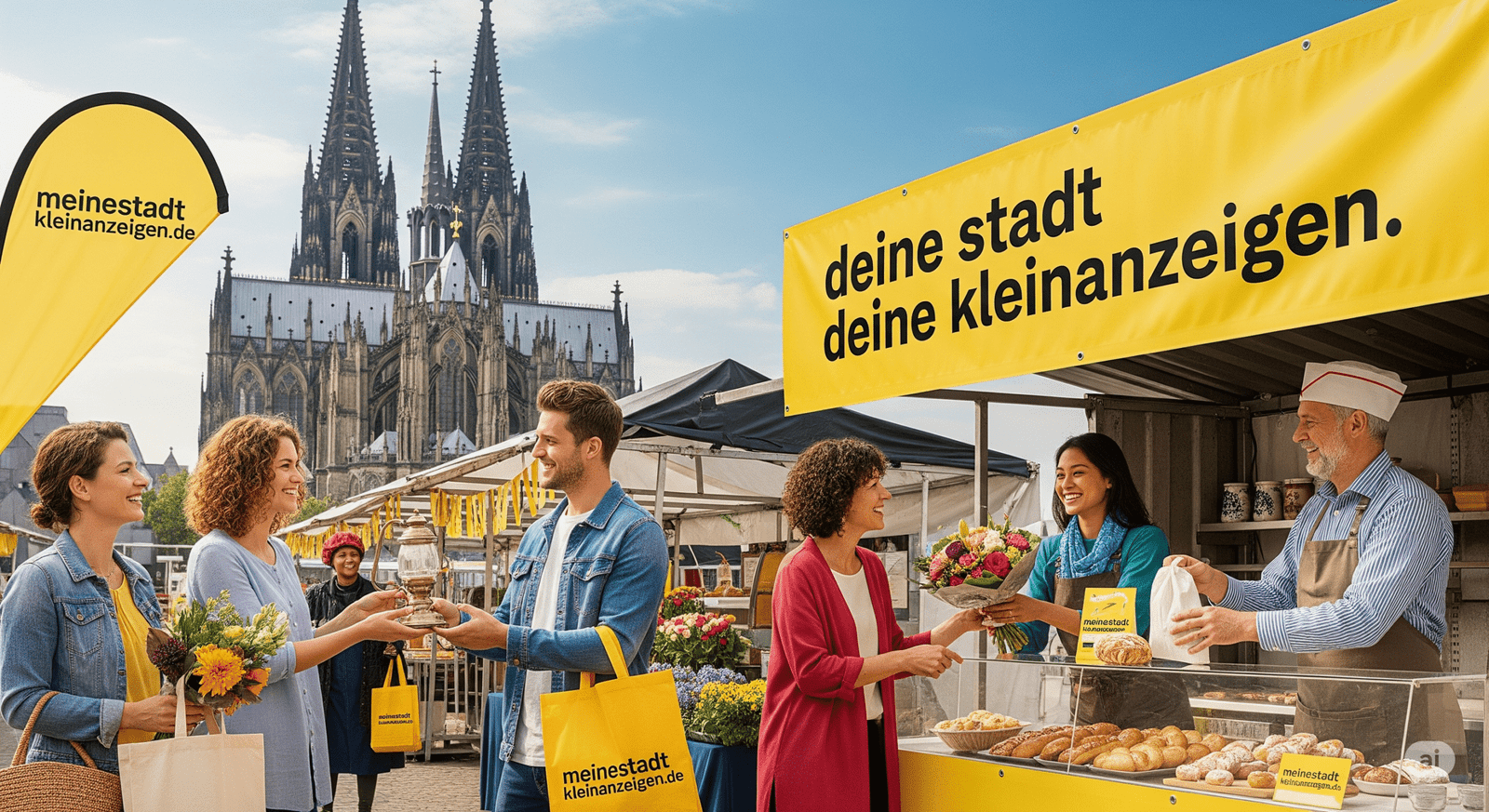
AI SEO Search is a powerhouse in creating Shopify stores that are built to rank. Based in Bayern but with a strong focus on the competitive Hamburg market, they combine stunning web design with cutting-edge AI-driven SEO strategies. They understand that a beautiful store is useless if no one can find it. Their data-centric approach ensures your ecommerce site not only looks professional but also dominates search engine results, driving organic traffic and maximizing your ROI. They are the go-to agency for businesses that demand visibility and performance.
RM Digital24 excels in crafting bespoke Shopify and Shopify Plus experiences. They are the architects and engineers who can bring any complex vision to life. Whether you need a custom app, a complex integration with your ERP system, or a highly specialized B2B portal, RM Digital24 has the deep technical expertise. While headquartered in Bayern, their team has delivered sophisticated ecommerce solutions for numerous clients in Hamburg, helping them scale operations and automate business processes. They are the ideal partner for established businesses with unique technical requirements.


In the competitive world of ecommerce, authority is everything. AI Linkboost specializes in the most challenging aspect of SEO: building a powerful backlink profile. They help Shopify stores in Hamburg and across Germany become recognized authorities in their niche. Their strategic outreach and content marketing campaigns earn high-quality links that Google trusts, catapulting your store to the top of search results. If you're serious about long-term, sustainable growth and building a brand that lasts, AI Linkboost provides the essential fuel.
Use this quick comparison to see which agency best aligns with your primary business goals.
| Feature | AI SEO Search | RM Digital24 | AI Linkboost |
|---|---|---|---|
| Primary Focus | SEO & Organic Growth | Custom Development & B2B | Link Building & Authority |
| Best For | Startups & Growth-focused Brands | Established Businesses & Enterprises | Competitive Niches |
| Shopify Plus Experts | ✔ | ✔✔ | ✔ |
| German Market Compliance | ✔✔ | ✔✔ | ✔ |
| AI-Powered Strategy | ✔✔ | ✔ | ✔✔ |
Follow this proven 5-step process to select an agency that will become a true partner in your growth.
Clearly outline your budget, timeline, and what success looks like for you.
Use this guide and our directory to find 3-4 potential agencies.
Review their past work. Do you like their style? Do their sites perform well?
Talk to them. Do they understand your vision? Is there good chemistry?
Ensure the proposal details the scope, costs, and timeline clearly.
Shopify has emerged as the undisputed leader in the ecommerce platform market, and its dominance in Germany, particularly in dynamic commercial hubs like Hamburg, is no accident. At its core, Shopify is a subscription-based software that allows anyone to set up an online store and sell their products. It provides a complete, all-in-one solution that includes everything from website hosting and design templates to payment processing and shipping integrations. What sets Shopify apart from competitors like WooCommerce or Magento is its unparalleled ease of use combined with powerful, scalable features. For a Hamburg-based startup, this means you can launch a professional, fully functional online store in a matter of days, not months, without needing a dedicated team of developers. The intuitive backend allows merchants to easily manage products, track inventory, and fulfill orders, freeing up valuable time to focus on marketing and customer service.
The platform's scalability is another key factor in its success. A small artisan selling from a workshop in the Sternschanze district can start with a basic Shopify plan for a low monthly fee. As their business grows and they begin shipping across Germany and Europe, they can seamlessly upgrade their plan to access more advanced features. For large, established brands in the HafenCity district, Shopify Plus offers an enterprise-level solution capable of handling thousands of transactions per minute, with advanced tools for automation, customization, and international commerce. This scalability ensures that businesses never outgrow the platform. Furthermore, Shopify's extensive App Store, with thousands of plugins for everything from marketing automation to DSGVO compliance, allows for endless customization. This ecosystem empowers Hamburg businesses to tailor their online stores to the specific needs of the German market, integrating local payment providers like Klarna and SOFORT and ensuring full legal compliance, making it the smart, flexible choice for modern commerce.
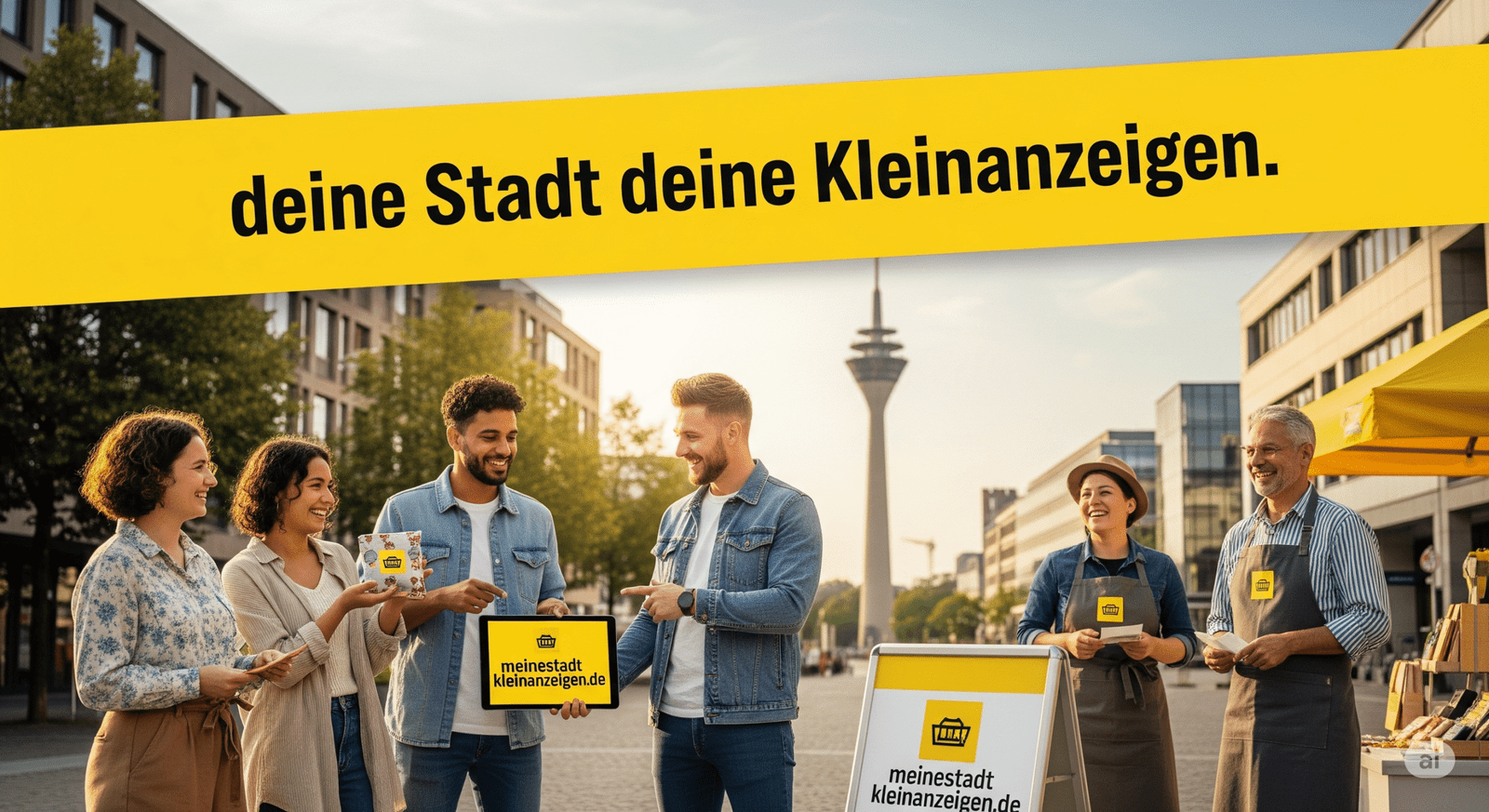
Hamburg's status as a major European port city and a powerhouse of the German economy creates a uniquely fertile ground for ecommerce businesses. The city's long history of trade and commerce has fostered a world-class logistics and infrastructure network. For a Shopify store owner, this means access to some of the most efficient shipping and fulfillment services in the world. Whether you're shipping products from a warehouse in Billbrook or drop-shipping from international suppliers, Hamburg's logistical prowess ensures that your products reach customers quickly and reliably, both domestically and across the globe. This is a significant competitive advantage that reduces shipping costs and improves customer satisfaction, two critical factors for online success. The presence of major logistics players like DHL, Hermes, and Kühne + Nagel, all with significant operations in the city, provides a wide range of options for businesses of all sizes.
Beyond logistics, Hamburg boasts a vibrant and affluent consumer market with a high level of digital literacy. The city is home to a diverse population with strong purchasing power, creating demand across a wide spectrum of niches, from sustainable fashion to high-tech gadgets and gourmet foods. Moreover, Hamburg is a hub for the media, advertising, and tech industries. This concentration of creative and technical talent provides a rich ecosystem for ecommerce businesses to tap into. Need a world-class photographer for your product shots? A skilled digital marketer to run your social media campaigns? A talented developer to build a custom Shopify app? You'll find them all in Hamburg. This ecosystem, combined with numerous networking events, co-working spaces, and startup incubators, fosters an environment of innovation that helps online businesses thrive. Launching a Shopify store in Hamburg means plugging into an economic engine built for global commerce.
Selecting the right Shopify agency is a critical business decision that can define the trajectory of your online success. It's not just about finding a team that can build a visually appealing website; it's about finding a long-term partner who understands your business, your market, and your customers. The first step is to look beyond their homepage and dive deep into their portfolio. Analyze the live websites they've built. Are they fast and responsive? Is the user experience intuitive? Do they convert visitors into customers effectively? Pay close attention to the details: the quality of the product photography, the clarity of the value proposition, and the seamlessness of the checkout process. Look for agencies that have experience in your specific industry. An agency that has successfully launched several online fashion brands will have invaluable insights that a generalist agency might lack. They'll understand the nuances of sizing charts, collection merchandising, and the importance of high-quality visual content. Don't be afraid to ask for case studies with concrete results. Look for metrics like conversion rate increases, growth in organic traffic, and improvements in average order value. A top-tier agency will be proud to share their successes and explain the strategies they used to achieve them.
The second, and perhaps most important, aspect is the human element. You will be working closely with this team for weeks or even months, so cultural fit and clear communication are paramount. During the initial consultation, gauge how well they listen. Are they asking insightful questions about your business goals and target audience, or are they just trying to sell you a pre-packaged solution? A great partner will act as a strategic advisor, challenging your assumptions and bringing new ideas to the table. Inquire about their project management process. Who will be your main point of contact? How often will you receive updates? What tools do they use to manage tasks and communication? A transparent and structured process, using tools like Asana, Slack, or Basecamp, is a sign of a professional and organized agency. Finally, discuss their approach to post-launch support. The launch of your website is the beginning, not the end. A reliable agency will offer ongoing support and maintenance retainers to ensure your site remains secure, fast, and up-to-date. They should also be proactive in suggesting improvements and new features to help you stay ahead of the competition. Choosing an agency is an investment in your future, so take the time to find a partner who is as committed to your growth as you are.

A leading Shopify agency offers far more than just web design; they are comprehensive ecommerce partners. Their services typically begin with **Strategy and Consultation**, where they dive deep into your business model, target audience, and competitive landscape in Hamburg to create a roadmap for success. This is followed by **UX/UI Design**, a critical phase where they design the customer journey, from the first click to the final purchase, ensuring the interface is both beautiful and intuitive. The core of their offering is **Shopify Development**, which can range from setting up and customizing a pre-built theme to full-blown **Custom Theme Development** from scratch for a truly unique brand experience. This includes making the site fully responsive for flawless performance on all devices.
Beyond the initial build, top agencies handle complex **App Integration and Custom App Development**. They know which apps from the Shopify ecosystem are best for the German market (for legal compliance, shipping, etc.) and can build custom applications when an off-the-shelf solution doesn't exist. Crucially, they are experts in **Digital Marketing**. This isn't an afterthought; it's integrated from the start. Services like **Search Engine Optimization (SEO)** ensure your store is visible on Google, **Pay-Per-Click (PPC)** advertising drives immediate traffic, and **Content Marketing** builds your brand's authority. Finally, the best agencies provide ongoing **Support and Maintenance** retainers, acting as your dedicated tech team to handle updates, security, and performance optimization, ensuring your ecommerce machine runs smoothly long after launch.
While Shopify's theme store offers many excellent starting points, a custom-developed theme is often the key to unlocking a brand's full potential. In a competitive and style-conscious market like Hamburg, standing out is paramount. A custom theme allows you to create a unique digital storefront that perfectly reflects your brand identity, rather than fitting your brand into a pre-existing template used by countless other stores. This bespoke approach ensures that every pixel, every interaction, and every user journey is designed specifically to appeal to your target customer and to tell your brand's story in a compelling way. It moves your website from being a generic online store to a memorable brand experience.
The benefits of custom development go far beyond aesthetics. Performance is a major factor. Custom themes are built with clean, lean code, free from the bloat that can slow down multi-purpose pre-built themes. This results in faster page load speeds, which is a critical factor for both SEO rankings and user experience—a one-second delay can significantly decrease conversion rates. Furthermore, a custom theme is built for your specific operational needs. If you have a unique product type, a complex filtering system, or a specific way you want to display collections, these features can be built directly into the theme's core. This eliminates the reliance on multiple, sometimes conflicting, third-party apps, which can slow down the site and create security vulnerabilities. A custom theme is a long-term investment in your brand's scalability, performance, and unique identity in the crowded ecommerce space.
Shopify Plus is the enterprise-level solution for high-volume, high-growth businesses, and knowing when to make the leap is a crucial strategic decision. The primary indicator is revenue; if your business is consistently generating over €1 million annually, you are likely hitting the limits of the standard Shopify plans and are a prime candidate for Plus. But it's not just about sales volume. You should consider upgrading if your operational complexity is increasing. Do you need to manage multiple international storefronts with different languages and currencies? Shopify Plus allows you to manage up to ten stores from a single dashboard, simplifying global expansion. Are you a B2B business looking to offer wholesale pricing and a dedicated portal for your business customers? Shopify Plus has robust, built-in B2B functionality that streamlines this entire process.
The real power of Shopify Plus lies in its advanced customization and automation capabilities. A key feature is **Shopify Scripts**, which allows for deep customization of the checkout process—something not possible on standard plans. You can create custom shipping rules, tiered pricing, or unique promotions that apply automatically at checkout, creating a frictionless experience for customers. Another game-changer is **Shopify Flow**, an automation tool that lets you build custom workflows to handle repetitive tasks. For example, you can automatically tag high-value customers, send a notification to your fulfillment team when inventory is low, or pause high-risk orders for review. This level of automation frees up your team to focus on growth. For ambitious Hamburg brands planning to scale significantly, Shopify Plus isn't just a platform; it's a growth engine that provides the power, flexibility, and control needed to compete at the highest level.
For a Shopify store in Hamburg, a generic SEO strategy is not enough. Success requires a localized approach that understands the nuances of the German market and the specific search behaviors of Hamburg's residents. It starts with **Local Keyword Research**. Instead of just targeting "organic coffee," you should target "bio kaffee kaufen Hamburg Eimsbüttel" or "same day delivery coffee beans Altona." This captures high-intent customers actively looking to buy locally. A critical component of this is optimizing your **Google Business Profile**, ensuring your business appears prominently in local map searches with accurate information, positive reviews, and locally relevant posts. An expert agency like AI SEO Search will ensure your site's content, from product descriptions to blog posts, is infused with these local terms naturally.
Beyond keywords, **Technical SEO** is vital. This involves ensuring your Shopify store is perfectly configured for search engines. This includes optimizing site speed (especially for mobile users), implementing correct German-language hreflang tags for international targeting, and creating a logical site structure that's easy for Google to crawl. A crucial element is building **Local Authority**. This means getting your business mentioned on other relevant Hamburg-based websites, blogs, and online magazines. For example, a local fashion boutique could be featured in a blog about shopping in the Karolinenviertel. These local backlinks, which an agency like AI Linkboost specializes in acquiring, are powerful signals to Google that your business is a trusted and relevant part of the local community. This combination of hyper-local content, technical excellence, and local authority building is the key to dominating search results in Hamburg.

Offering the right payment options is non-negotiable for success in the German ecommerce market. German shoppers have strong preferences and expect to see their trusted payment methods at checkout. Simply offering credit card and PayPal is not enough and can lead to high rates of cart abandonment. A professional Shopify agency will guide you in integrating the essential payment gateways for Germany. The most important of these is **Klarna**, which offers "Kauf auf Rechnung" (buy on account/invoice). This is immensely popular in Germany as it allows customers to receive the product before they pay, significantly increasing trust and conversion rates. Klarna also offers installment plans ("Ratenkauf"), which can boost the average order value.
Another crucial integration is **SOFORT Überweisung** (now part of Klarna), which allows customers to pay directly and securely using their online banking credentials. It's a fast and trusted method for millions of Germans. Similarly, **Giropay** is another bank-transfer-based system widely supported by German banks. While **PayPal** remains a popular choice for its convenience and buyer protection, it should be offered alongside these local methods, not in place of them. An experienced Hamburg-based agency will not only handle the technical integration of these gateways but also ensure the checkout process clearly displays these options, building immediate trust with German consumers. They will also configure the system to handle the specific order flows associated with these methods, ensuring a smooth process for both the customer and your fulfillment team.
Navigating German data protection law, the Datenschutz-Grundverordnung (DSGVO), is one of the most critical and complex challenges for any online store. Non-compliance can lead to severe fines and a loss of customer trust. A professional Shopify agency with experience in the German market is essential to ensure your store is legally sound. There are several non-negotiable elements. First is the **Impressum** (legal notice), a page that must be easily accessible from anywhere on your site and contain specific information about your business, including its name, address, contact details, and trade register number. Second is a comprehensive **Datenschutzerklärung** (privacy policy) that clearly explains what personal data you collect, why you collect it, and how customers can exercise their rights.
Equally important is the correct implementation of a **Cookie Consent Banner**. German law requires active, informed consent before any non-essential cookies (like those for marketing or analytics) are placed on a user's device. This means having a banner that doesn't just say "we use cookies" but allows users to accept or reject specific categories of cookies. Furthermore, you must provide a clear and legally compliant **Widerrufsbelehrung** (cancellation policy), informing customers of their right to cancel an order within 14 days. Agencies use specialized apps and work with legal tech providers like IT-Recht Kanzlei or Händlerbund to generate and automatically update these legal texts. Investing in expert guidance on DSGVO is not an expense; it's a fundamental requirement for doing business online in Germany.
In ecommerce, User Experience (UX) and User Interface (UI) are not just design buzzwords; they are the foundation of a successful online store. **UI Design** is what the customer sees: the colors, the typography, the product images, and the layout. A good UI is clean, on-brand, and makes the products look appealing. For a Hamburg-based brand, this means creating a visual identity that resonates with the sophisticated yet understated aesthetic of the city. It's about using high-quality photography and a professional design that builds immediate trust and communicates quality.
**UX Design**, on the other hand, is how the site feels and functions. It's the logic behind the design. A great UX makes the shopping process intuitive, effortless, and enjoyable. This includes having a clear and logical navigation menu, powerful search and filtering options that help customers find products quickly, and a streamlined, multi-step checkout process that minimizes friction. For example, a customer looking for a specific jacket should be able to filter by size, color, and price with just a few clicks. The "add to cart" button should be prominent, and the checkout process should require the absolute minimum number of steps. A top Shopify agency focuses on a data-driven UX approach, analyzing user behavior to identify and eliminate any points of confusion or frustration. A seamless UX/UI doesn't just make your store look good; it directly impacts your bottom line by reducing bounce rates, increasing conversion rates, and encouraging repeat business.
For ambitious and tech-forward brands in Hamburg, **Headless Commerce** represents the cutting edge of ecommerce technology. In a traditional Shopify setup, the front-end (the "head," or the visual storefront) and the back-end (the Shopify admin where you manage products and orders) are tightly linked. Headless commerce decouples these two. This means you continue to use Shopify's powerful and reliable back-end for all your ecommerce functions, but you build a completely custom front-end using modern web frameworks like React, Vue.js, or Svelte. This approach offers several game-changing advantages.
The most significant benefit is **unparalleled performance and speed**. Front-ends built with these modern frameworks are incredibly fast, loading almost instantly. This creates a superior user experience and provides a significant boost for SEO. The second advantage is **complete creative freedom**. With a headless approach, designers and developers are no longer constrained by the structure of Shopify themes. They can create unique, highly interactive, and app-like experiences that are impossible to achieve with a traditional setup. Finally, headless architecture is ideal for **omnichannel strategies**. Because the front-end is separate, you can easily feed your product information from Shopify's back-end to multiple "heads"—not just a website, but also a mobile app, an in-store kiosk, or even a smart mirror. While it represents a larger investment, for established Hamburg brands looking to build a best-in-class digital flagship experience, headless commerce with Shopify is the future.
The Shopify App Store is a fantastic resource with thousands of apps that can extend the functionality of your store. However, there often comes a point where a growing business has a unique requirement that no existing app can solve perfectly. This is where **custom Shopify app development** becomes a powerful competitive advantage. A custom app is a piece of software built exclusively for your business to solve a specific problem or create a unique customer experience. For instance, a Hamburg-based furniture store might need a sophisticated product configurator that allows customers to choose fabrics, legs, and dimensions, with the price updating in real-time. An off-the-shelf app might be too generic, but a custom app can be tailored to their exact product line and branding.
Another common use case is integration with third-party systems. Perhaps your business uses a custom German ERP system for inventory management or a specialized logistics partner for deliveries within Hamburg. A custom app can create a seamless, two-way sync between Shopify and these systems, automating processes, reducing manual data entry, and minimizing errors. This saves significant time and money in the long run. Agencies like RM Digital24 specialize in identifying these opportunities and building robust, secure, and scalable custom apps. The decision to build a custom app is an investment, but for businesses with unique operational needs or a vision for a one-of-a-kind customer feature, it can provide a significant return by improving efficiency and creating a strong competitive moat.

Re-platforming your ecommerce store is a major undertaking, but many businesses migrate to Shopify from platforms like Magento or WooCommerce to benefit from its ease of use, security, and scalability. A successful migration, however, requires careful planning and execution to avoid disrupting your business. A professional Shopify agency is essential to manage this complex process. The first step is a thorough **Data Audit**, where the agency analyzes your existing store to map out all the data that needs to be moved, including products, customer accounts, order history, and content pages.
The core of the project is the **Data Migration** itself. Using specialized tools, the agency will transfer all your products (with their images, variants, and descriptions), customer data (including passwords, where possible), and historical order information to the new Shopify store. Simultaneously, they will be building your new store's design on Shopify. The most critical step of the entire process is implementing **301 Redirects**. This involves mapping every single URL from your old site to the corresponding URL on the new Shopify site. This is absolutely vital for preserving your hard-earned SEO rankings. Without proper redirects, Google will see your new site as brand new, and you could lose years of search engine authority overnight. An experienced agency will manage this meticulously, ensuring a seamless transition for both search engines and your existing customers, minimizing downtime and protecting your revenue stream throughout the move.
Launching your Shopify store is a major milestone, but it's the beginning of your ecommerce journey, not the end. The digital landscape is constantly evolving, and your online store requires ongoing attention to remain secure, functional, and competitive. This is why top Shopify agencies offer **Post-Launch Support and Maintenance** retainers. These service packages ensure that you have a dedicated team of experts on hand to manage the technical health of your store, allowing you to focus on running your business. One of the most critical aspects of this support is **Security and Updates**. The agency will proactively monitor your store, apply security patches, and manage updates for all your apps and your theme to protect your business and your customers' data from threats.
Beyond security, ongoing support focuses on **Performance Optimization**. The agency will regularly monitor your site's speed and performance, identifying and fixing any issues that could be slowing it down and hurting your conversion rates. They will also handle any **Bug Fixes** that may arise as Shopify and its integrated apps release updates. Many support retainers also include a bank of hours for **Small Enhancements and Strategic Advice**. This means you can request small changes—like adding a new promotional banner or tweaking the layout of a page—without having to start a new project. You also have access to strategic guidance from ecommerce experts who can recommend new features, apps, or marketing tactics to help you continue to grow. A support retainer is an investment in peace of mind and the long-term success of your online business.
When evaluating a Shopify agency, their portfolio is your most valuable source of insight. It's a direct reflection of their capabilities, style, and the quality of their work. Don't just glance at the homepage screenshots; take the time to visit the live websites they feature. As you browse, ask yourself a series of critical questions. First, **Performance**: How fast do the sites load? Use Google's PageSpeed Insights to get an objective score. A slow portfolio is a major red flag. Second, **Design and User Experience**: Is the design unique and professional, or does it feel like a generic template? Is the navigation intuitive? Can you easily find products and information? Go through the process of adding an item to the cart and starting the checkout. Is the process smooth and frictionless?
Next, assess their **Technical and Strategic Acumen**. Do the sites have advanced features like complex product filters, store locators, or unique product customizers? This demonstrates their development capabilities. Look for evidence of a strong SEO foundation. Do the product pages have well-written, keyword-rich descriptions? Is there a blog with high-quality content? This shows they think about traffic generation, not just design. Finally, consider the **Diversity of their Work**. Have they worked with businesses of different sizes and in different industries? An agency that has experience with both fashion startups and B2B industrial suppliers likely has a broad skill set. A strong portfolio should not only look good but also demonstrate a deep understanding of how to build websites that are fast, user-friendly, and engineered for commercial success.
Understanding the potential investment is crucial when planning your ecommerce project. The cost of hiring a Shopify agency in Hamburg can vary significantly based on the scope, complexity, and the agency's experience. It's helpful to think in terms of tiers. At the entry-level, for a budget of roughly **€2,000 to €5,000**, you can expect a **Basic Theme Setup**. This typically involves a freelancer or a small agency helping you choose a suitable theme from the Shopify Theme Store, configuring it with your branding, setting up your products, and configuring basic settings. This is a good option for startups or businesses testing a new product idea with a limited budget.
The mid-tier, generally ranging from **€10,000 to €25,000**, is where most small to medium-sized businesses will find the best value. This budget allows for a **Customized Premium Theme or a Light Custom Build**. An agency will work with a high-quality premium theme and extensively customize it to match your brand, or build a simple custom theme. This tier usually includes professional project management, UX/UI design consultation, integration of essential apps, and basic SEO setup. For a budget of **€30,000 to €70,000+**, you are entering the realm of **Fully Custom Shopify and Shopify Plus Development**. This is for established brands and enterprises that require a completely bespoke theme built from the ground up, complex integrations with systems like ERPs or CRMs, custom app development, and a comprehensive strategy for a Shopify Plus launch. When getting quotes, ensure the agency provides a detailed proposal outlining exactly what is included to avoid any surprises.
In today's ecommerce landscape, you can't just build a store and expect customers to find you. **Content Marketing** is the process of creating and distributing valuable, relevant, and consistent content to attract and retain a clearly defined audience—and, ultimately, to drive profitable customer action. For a Shopify store, this means moving beyond just product pages and creating content that educates, entertains, or inspires your target customers. The most common form of content marketing is a **Blog**. A Hamburg-based sustainable fashion brand, for example, could write articles about "The Best Flea Markets in Sternschanze," "How to Care for Organic Cotton," or "A Guide to Sustainable Cafes in Hamburg." This content attracts potential customers who are interested in sustainability and the local lifestyle, even if they aren't actively searching for a new dress at that moment. It builds trust and positions the brand as an authority in its niche.
Content marketing extends far beyond blogging. It includes creating engaging **Video Content** for YouTube and social media, such as product tutorials, behind-the-scenes looks at your workshop, or interviews with local Hamburg artisans. It can also involve creating downloadable **Guides or Lookbooks**, hosting **Webinars**, or starting a **Podcast**. The key is to provide value first. By consistently offering useful and interesting content, you build a loyal community around your brand. This community is more likely to buy from you, recommend you to their friends, and become long-term advocates for your business. An agency with content marketing expertise can help you develop a content strategy that aligns with your brand, resonates with your Hamburg audience, and uses SEO best practices to ensure your content gets discovered.

While Shopify is famous for its direct-to-consumer (D2C) capabilities, its B2B functionality is incredibly powerful, especially for businesses in a major commercial hub like Hamburg. With its large port and strong industrial base, Hamburg is home to countless manufacturers, distributors, and wholesalers. **Shopify Plus** offers a suite of tools specifically designed to serve these B2B businesses. The platform allows you to run both your D2C and B2B operations from a single back-end, which is a massive efficiency gain. You can create a password-protected, separate wholesale storefront or blend your B2B and D2C offerings in a single store.
The key B2B features include **Company Profiles**, which allow you to create accounts for your wholesale customers with multiple buyers and different permission levels. The most powerful tool is **Custom Catalogs and Pricing**. You can assign specific product catalogs and price lists to different customer groups. For example, a high-volume distributor can get a 40% discount on all products, while a smaller retail partner gets a 25% discount. You can also set custom payment terms, such as Net 30 or Net 60, allowing your B2B customers to purchase on credit. The entire process streamlines the wholesale ordering experience, allowing your customers to self-serve 24/7, just like in a D2C store. This frees up your sales team from manual order entry and allows them to focus on building relationships and acquiring new clients. A skilled agency can help you configure Shopify B2B to match your exact business logic and workflows.
In Germany, the majority of online shopping sessions now happen on a smartphone. This means that having a mobile-friendly website is no longer a feature; it's a fundamental requirement. **Mobile Commerce**, or M-Commerce, optimization is the practice of designing your Shopify store to provide a seamless and enjoyable experience specifically for mobile users. This goes beyond just having a responsive design that shrinks to fit a smaller screen. It requires a **Mobile-First** mindset, where the mobile experience is designed first and then adapted for larger screens, not the other way around. This ensures that the most important information and functions are prioritized for the limited screen real estate of a phone.
Key elements of M-Commerce optimization include ensuring **Fast Load Speeds** on mobile networks, as mobile users are notoriously impatient. This involves optimizing images, using efficient code, and leveraging browser caching. The user interface must be **Thumb-Friendly**, with large, easily tappable buttons and enough space between interactive elements to avoid accidental clicks. Navigation should be simplified, often using a clear "hamburger" menu, and the search bar should be prominent and easy to use. The most critical part is the **Mobile Checkout**. This process must be as frictionless as possible. This is where integrating mobile wallets like **Apple Pay and Google Pay** is a game-changer. They allow customers to complete a purchase with a single tap using their fingerprint or face ID, dramatically reducing cart abandonment. A top Shopify agency will obsess over every detail of the mobile experience to ensure you are capturing the largest segment of your potential customers.
The world of ecommerce is in a constant state of evolution, and the trends shaping its future are already taking root in tech-savvy cities like Hamburg. One of the most significant trends is **AI-Powered Personalization**. In the near future, Shopify stores will use artificial intelligence to offer each visitor a unique, personalized shopping experience, from customized product recommendations to dynamically changing homepage content based on their browsing history. This creates a more engaging and relevant journey for the customer. Another exciting development is the integration of **Augmented Reality (AR)**. Imagine a customer using their phone's camera to see how a piece of furniture would look in their living room or to virtually "try on" a pair of sneakers. Shopify is heavily investing in AR tools, making this technology more accessible to businesses of all sizes.
Sustainability, already a core value for many in Hamburg, will become an even more critical factor in purchasing decisions. Brands will need to be transparent about their supply chains and environmental impact, and Shopify stores will need to highlight these credentials effectively. Finally, the line between content and commerce will continue to blur with the rise of **Live Shopping** and **Social Commerce**. Businesses will sell products directly through interactive live video streams and social media platforms like Instagram and TikTok. Shopify's robust and flexible platform is perfectly positioned to help Hamburg's businesses adapt to these future trends. Its API-first approach and growing ecosystem of apps and integrations provide the foundation needed to innovate, experiment, and build the next generation of ecommerce experiences.
Have questions? We have answers. Here are some of the most common queries we receive about Shopify development in Hamburg.
Hamburg is a major economic hub with one of Europe's busiest ports, excellent infrastructure, and a thriving tech scene. This creates a perfect environment for ecommerce businesses to flourish, with access to talent, logistics, and a large consumer market in cities like Bergedorf, Harburg, and Altona.
The cost varies widely based on complexity. A basic Shopify store setup by a freelancer might start from €2,000. A custom-designed store from a top Hamburg agency can range from €10,000 to €50,000+, depending on features like custom apps, extensive integrations, and ongoing marketing support.
Shopify Plus is the enterprise-level solution for high-volume merchants. You should consider Shopify Plus if your business generates over €1 million in annual revenue, requires advanced customizations (like editing the checkout), dedicated support, and higher API limits for integrations. Agencies in Hamburg can help you evaluate if it's the right fit.
Listing your business on meinestadtkleinanzeigen.de connects you with a large, local audience actively searching for services in Germany. It's a powerful way to increase your visibility, generate leads, and grow your customer base for free.
Yes, while major agencies might be centrally located, there are talented freelance developers and smaller boutique agencies throughout all Hamburg districts, including Wandsbek, Eimsbüttel, and Hamburg-Nord. Our platform helps you find professionals right in your neighborhood.
Whether you're a service provider or a local business, get the visibility you deserve. Join thousands of successful businesses on Germany's trusted local platform.
Post Your Company for FREEHutäcker 17, 91347, Aufsess
(+49) 15168495881
contact@explodingbrands.de
Mon-Fri 08:00pm - 17:00am
Copyright 2024 © Explodingbrands, Ihr Unternehmensverzeichnis für Projektanfragen und Dienstleister. All Rights Reserved.
